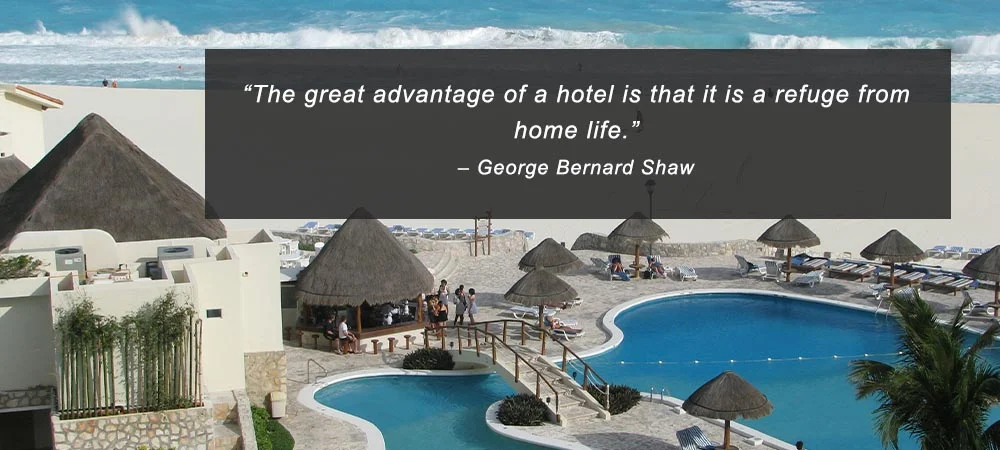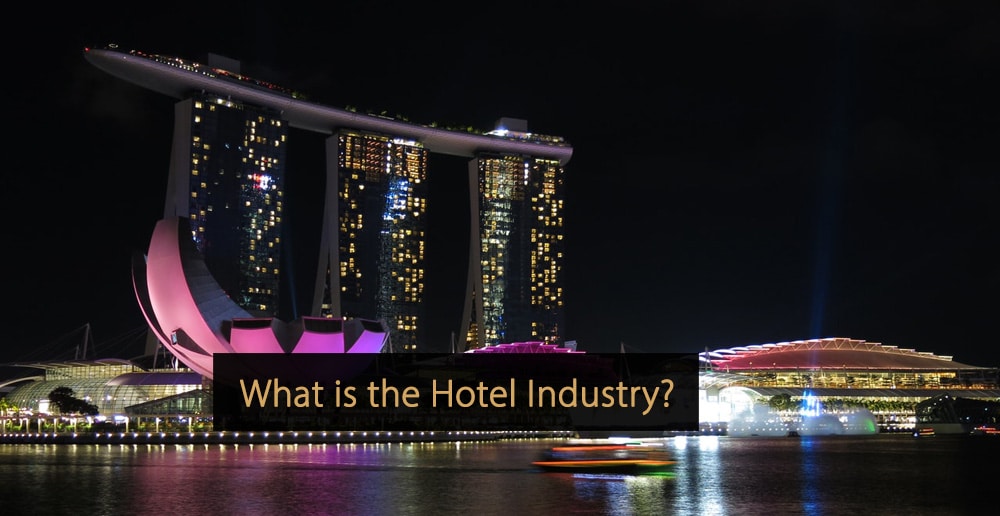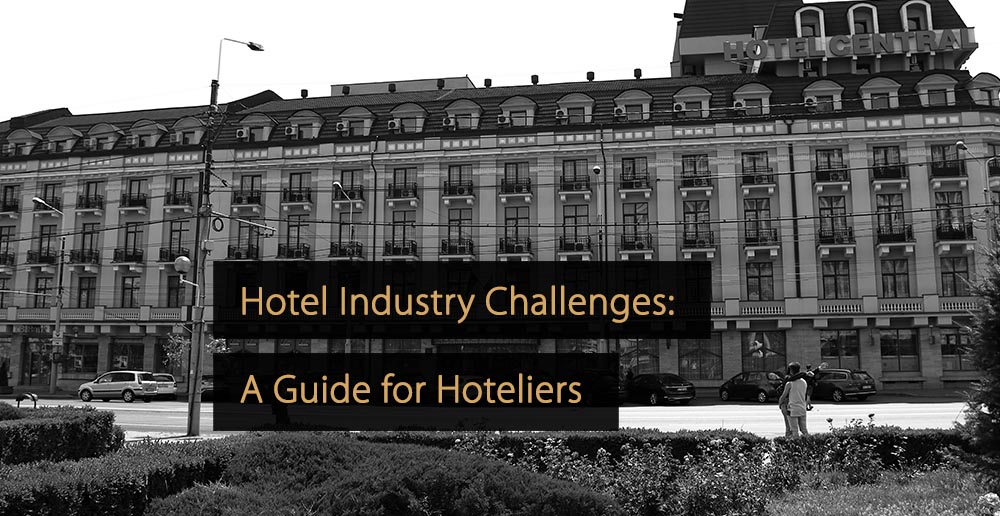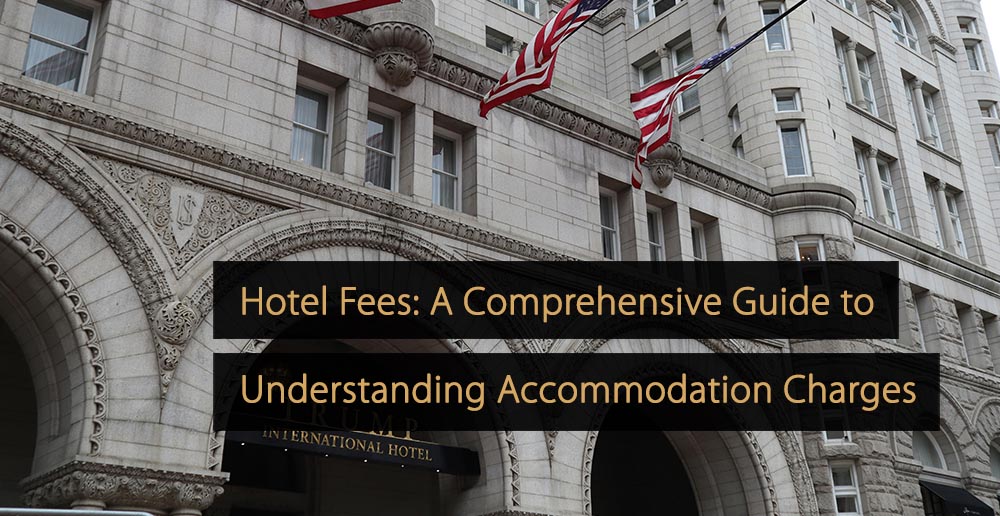The lodging industry is focused on the provision of temporary overnight accommodation for guests. It includes a wide range of businesses, such as hotels, motels, hostels, inns, campsites and guest houses.
The lodging industry is important because it provides guests with a place to stay while traveling. It facilitates both business and leisure travel and is one of the largest sectors in hospitality.
In this article, you can learn everything you need to know about the industry, including how it is defined, why it is so important, how it differs from the hotel industry, and the main types of lodgings available.
Table of Contents:
- What is the Lodging Industry?
- Why is the Lodging Industry Important
- What is the Difference Between Lodging and Hospitality?
- What is the Difference Between the Hotel and Lodging Industry?
- Examples of Businesses Operating in the Lodging Industry
- Understanding the Evolution of the Lodging Industry
- Exploring Types of Accommodation in the Hotel Industry
- An Overview of the Most Significant Hospitality Services
What is the Lodging Industry?
The lodging industry is a major sub-section of the hospitality industry, focused on providing short-term dwellings for customers. Businesses in the lodging industry offer guests shelter, security, and a place to sleep.
Lodging, as an activity, can consist of stays in a wide range of properties, with examples including hotels, motels, hostels, inns, bed and breakfasts, vacation rentals, and guest houses. Some lodgings may offer on-site food and beverage services, as is the case with hotels, while others may be sold to guests on a self-catering basis.
The lodging industry is vast, encompassing everything from high-quality, premium accommodation properties, right through to budget accommodation, campsites and homestays offered through platforms like Airbnb.
It is important to note that the lodging industry consists only of paid, temporary accommodation or dwellings. It does not include permanent housing, long-term rentals, or other forms of extended occupancy.
Why is the Lodging Industry Important
The lodging industry is a trillion-dollar industry, which facilitates both leisure and business travel. As a result, it is one of the most essential components of the wider hospitality industry.
All across the world, the industry not only provides guests with essential overnight accommodation, but also contributes greatly to local economies, attracting tourists and providing jobs. On any given day, millions of customers are engaging with lodging industry workers, facilities and services.
What is the Difference Between Lodging and Hospitality?
The lodging industry is focused squarely on the provision of accommodation or dwellings for customers. By contrast, the hospitality industry is far broader, dealing with the reception of guests more generally.
In fact, the lodging industry forms just one part of the wider hospitality industry. In addition to accommodation businesses, hospitality also includes entertainment businesses, like nightclubs, the food and beverages industry, and the travel sector.
This means hotels, vacation rentals, restaurants, cafes, travel agencies, nightclubs, bars and cruises are all hospitality businesses. By contrast, lodgings are places guests can stay overnight. Hotel guests are engaging with both the hospitality and lodging industries, whereas nightclub guests are only engaging with the hospitality industry.
What is the Difference Between the Hotel and Lodging Industry?
The lodging industry and the hotel industry are both concerned with the provision of short-term, overnight accommodation for guests. For this reason, the two terms are sometimes used interchangeably.
However, according to most accepted definitions, there is a slight distinction between the two. While both the hotel industry and the lodging industry encompass a large number of accommodation businesses, like hotels, hostels, inns, motels, and vacation rentals, the lodging industry has some additional elements beyond this.
These include campsites, caravan parks, RV parks and other facilities that are designed to enable guests to set up their own accommodation. This accommodation could take the form of tents, campervans or caravans.
Examples of Businesses Operating in the Lodging Industry
In the sections that follow, you can read about the most significant businesses operating in the lodging industry:
1. Hotels
Hotels form one of the largest components of the lodging industry and offer overnight accommodation and other services. Guests are given a private room and hotels will often provide food, entertainment and in-room hotel technology.
Hotels are important because they are designed to meet the needs of travelers. There are also a variety of types of hotel, each catering for different types of guests, including budget hotels, luxury hotels and long-stay hotels.
Many hotels offer different room types, like single rooms, double rooms and honeymoon suites. Other common features include business facilities, event spaces and housekeeping services.
2. Motels
Motels are similar to hotels in many ways, but are specifically designed to cater to the needs of motorists. The name ‘motel’ is formed from the words ‘motor hotel’ and these businesses are usually situated on busy travel routes.
The role of motels within the lodging industry is significant because they offer convenience during travel. These businesses often prioritize short stays of one or two nights before the guest gets back on the road.
Some of the main ways motels are distinct from hotels include the provision of on-site parking facilities and the ability to access rooms directly from the parking area, without going through a reception area first.
3. Bed and Breakfasts
Bed and breakfasts, also known as B&Bs, are relatively small businesses in the lodging industry, offering a “home away from home” appeal. They are often family-owned and provide overnight stays and a meal included with the price.
The B&B plays an important role in the industry, providing affordable and comfortable overnight stays, often in areas away from major cities and attractions. Owners sometimes live in the same building and provide a service that feels personal.
Most bed and breakfasts have a small number of rooms, and bathroom facilities may be shared with other guests. These businesses are often based within converted cottages, pubs, or farmhouses.
Video: Running a B&B / Small Hotel – Top 5 Mistakes To Avoid!
4. Vacation Rentals
Vacation rentals are privately owned houses, cottages, apartments, or condos, which guests are able to rent on a short-term basis. They are usually fully furnished and will provide kitchen facilities.
Within the lodging industry, vacation rentals are important as they offer guests a greater sense of privacy than many other options. These properties can also deliver a more authentic taste of local life.
The rise of Airbnb and similar platforms has helped to make vacation rentals extremely popular with modern travelers. There is often a sense of freedom and self-reliance associated with staying in a property of this kind.
5. Resorts
A resort can be described as a self-contained travel destination. These properties are similar to hotels but will combine accommodation with on-site food and beverages, entertainment, and other elements.
Resorts are a crucial option in the lodging industry because they are more than just a place to stay. Resorts function as a travel destination of their own, but are also often situated near major attractions.
The basic idea behind the resort concept is to cater to all of a guest’s basic needs within the resort grounds. While guests are free to explore the local area and nearby attractions, some will spend their entire stay in the resort itself.
6. Extended Stay Hotels
Extended stay hotels, also known as long-stay hotels, are similar to conventional hotels, but allow guests to stay longer. Most commonly, this means providing accommodation for multiple weeks, a month, or even several months.
These properties are valuable within the lodging industry because they cater to travelers who either want or need to be in a location for a significant period of time. They can also serve as a temporary base for business travelers.
In extended stay hotels, the hotel management team will often try to provide facilities and amenities that may not be found in most regular hotels, such as in-room laundry facilities.
7. RV Parks and Campsites
RV parks and campsites are two similar lodging industry locations, but offer slightly different services. However, crucially, they both provide space for people to bring camping equipment or vehicles, so they can stay on-site.
The value of RV parks is in allowing people who own campers or RVs to stay on the site and, in most cases, connect to electricity. Campsites, on the other hand, usually serve as a location for people to pitch a tent and access water.
RV parks and campsites are generally viewed as locations or facilities rather than accommodations. This is one of the main ways in which the lodging industry is distinct from the hotel industry.
8. Boutique Hotels
Boutique hotels are relatively small, fashionable hotels, which often have unique themes or design elements. They are most commonly found in urban areas and are usually seen as aspirational and trendy.
Boutique hotels are increasingly important because personalization has emerged as one of the single biggest hotel trends. A lot of boutique hotels provide services that are tailored to the needs of individuals.
The boutique hotel concept also appeals strongly to travelers seeking unique and memorable experiences. Most boutique hotels are independently owned, but chain boutique hotels do exist and are gaining popularity, too.
9. Cottages and Cabins
Cottages and cabins are small dwellings, which are often found in rural areas. Cabins usually have minimalist designs and are constructed from simple materials like logs, whereas cottages usually resemble small houses.
Both of these business types form a major part of the lodgings industry, catering to those visiting quiet, remote or idyllic areas. They suit guests who are seeking self-catered accommodation.
Cottages and cabins often appeal to those with a love of nature, exploration, and the outdoors in general.
10. Apart-hotels
Apart-hotels, sometimes known as apartment hotels or residential hotels, combine elements of conventional hotels and serviced apartments. This usually means a fully equipped apartment, with a hotel booking system.
These businesses occupy an interesting space in the lodging industry because they target guests who want apartment-style accommodation, with extra services. Often, apart-hotels will provide housekeeping services too.
Apart-hotels usually offer kitchen and laundry facilities, cooking appliances, a refrigerator, furniture and entertainment options. The combination of these facilities and on-site cleaning services can make hotel marketing efforts easier, as properties of this kind may be viewed by guests as the “best of both worlds“.
11. Capsule Hotels
Capsule hotels or pod hotels are popular in Japan and provide guests with a small pod, which contains a bed and a number of additional amenities. The pods are usually too small to stand up in.
The popularity of capsule hotels is primarily linked to budget-conscious travelers. These hotels offer a cost-effective place to stay, and their role in the lodging industry is also aided by the novelty factor they offer.
Although capsule hotels are primarily associated with Japan, they have emerged in other parts of the world too. Capsule hotels will usually sell a large number of capsules and guests will share bathroom facilities.
12. Glamping Sites
Glamping sites are a reasonably new phenomenon, with ‘glamping’ referring to “glamorous camping“. The concept first became popular in the United Kingdom and offers camping with more luxurious facilities.
The glamping industry has grown rapidly in a relatively short space of time, appealing to people who like the idea of camping, but who would also prefer modern conveniences. This may mean a luxury tent or modern bathroom facilities.
Some glamping sites provide beds or mattresses, kitchen facilities, entertainment and even heating. Unlike camping sites, which often expect guests to bring their own tents, some glamping sites will provide special glamping tents for guests.
Video: What is Glamping?
13. Houseboats and Flotels
A houseboat or flotel (floating hotel) is a type of accommodation that sits on the water. Most commonly, these properties will be placed on top of rafts in rivers or harbors and will offer features similar to a house or hotel.
Floating accommodation options appeal to travelers who are interested in boats or water in general. Like capsule hotels, they also have a clear novelty factor that will interest guests who are seeking unique places to stay.
Some houseboats and flotels are permanently located in the same place, while others may be more temporary. The use of floating accommodation for wellness accommodation is one of the more intriguing hotel trends right now.
14. Ryokans
A ryokan is a traditional Japanese inn, often located away from major cities, especially in places with hot springs. This kind of accommodation will usually have sliding doors, tatami mats and communal baths.
Ryokans are popular within Japan’s lodging industry because they deliver a unique experience and a snapshot of traditional Japanese culture. Budget options also exist and these are sometimes called minshuku.
It is common for these businesses to include meals with the price of the accommodation, much like a bed and breakfast.
Understanding the Evolution of the Lodging Industry
Digital technology has had a transformative effect on the lodging industry, making it easier for guests to research options, read customer reviews, compare prices, and book accommodation online. There has also been an increase in the number of informal lodgings, such as homestays offered on platforms like Airbnb.
Contactless technology and the ubiquitous nature of smartphones has helped to improve efficiency in many lodgings. For instance, many businesses in the sector accept contactless payments, while a growing number of hotels now offer contactless check-ins and check-outs, allowing guests to arrive and leave without delays.
The COVID-19 pandemic increased the industry’s focus on issues like hygiene and safety, while the rise of the Internet of Things (IoT) has seen an increase in the use of ‘smart’ devices and integrated technology.
There is also a growing expectation that businesses in the sector should provide personalization options. Guests no longer accept being treated as just another customer and instead want to be seen as a unique individual.
Exploring Types of Accommodation in the Hotel Industry
As previously stated, the lodging industry and hotel industry have a lot of crossovers, but there is a distinction around facilities like campsites. The hotel industry focuses purely on accommodation businesses, with examples including hotels, motels, guest houses, holiday cottages, hostels, apartments and cabins.
In the “Types of Accommodation in the Hotel Industry” article, you can find out more about the different businesses that make up the hotel industry and what they each have to offer guests.
An Overview of the Most Significant Hospitality Services
The lodging industry forms one section of the wider hospitality industry. The hospitality sector is defined by the welcoming of guests and the provision of services and pleasant experiences. It includes everything from hotels, cafes and nightclubs, right through to ski resorts, theme parks and cruises.
In the “Hospitality Services: A Clear Overview of All Hospitality Services” article, you will find an in-depth breakdown of more than 50 different services, along with a breakdown of the main hospitality sub-sectors.
The lodging industry is centered around providing accommodation or dwellings. It is a trillion-dollar industry, which facilitates business and leisure travel and provides a vast number of jobs. The variety of businesses in the industry also ensures travelers and other guests have options to suit almost all needs.
More Tips to Grow Your Business
Revfine.com is the leading knowledge platform for the hospitality and travel industry. Professionals use our insights, strategies, and actionable tips to get inspired, optimize revenue, innovate processes, and improve customer experience.Explore expert advice on management, marketing, revenue management, operations, software, and technology in our dedicated Hotel, Hospitality, and Travel & Tourism categories.









Leave A Comment